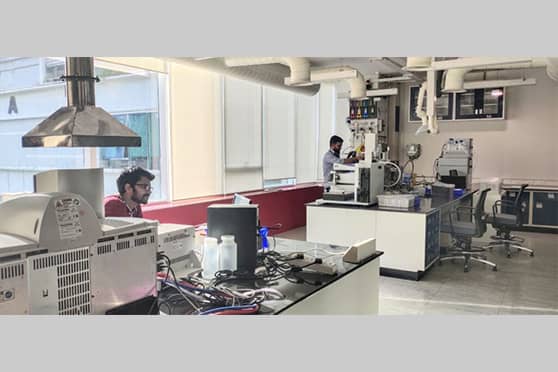IIT Madras to study wastewater, alert public on possible threats


Indian Institute of Technology (IIT) Madras is setting up a research facility to analyse wastewater and share the findings with the public to prevent outbreaks of diseases caused by organisms and chemicals in wastewater, the institute has said in a statement.
The Wastewater-Based Epidemiology (WBE) research facility is being established by the International Centre for Clean Water (ICCW) to gain a detailed insight into wastewater, especially during the COVID-19 pandemic, IIT Madras said in its statement.
Testing the wastewater of a city for indicator organisms and chemicals, researchers at the centre can track and even prevent a future viral outbreak by detecting it in the early stages. Through a dashboard, the data collected and analysed will be made public. While the research centre will focus on one city in the initial stages, the facility will eventually be extended to other parts of the country.
Water fingerprinting done at the centre will study the chemical and biological molecules present in wastewater. Aspects such as pollutants, pesticides, licit and illicit drugs can be tracked in the wastewater as well.
Padma Shri awardee T Pradeep, professor-in-charge, ICCW, IIT Madras, said, “Ensuring clean water for people needs a detailed understanding of wastewater. The ICCW team will work on building a hydro-informatics platform for the city with appropriate modelling tools to give spatiotemporal information of the data derived from WBE studies.”
Issues of concern such as increasing antimicrobial resistance due to excessive consumption of antibiotics will also be analysed by the WBE. This will lead to the improvement of public health through the control of pharmaceuticals and personal care products.
While the ICCW has been developing technologies to make clean water affordable, periodic analysis of wastewater goes hand in hand to ensure water security. Using wastewater-based epidemiology research to provide practical solutions for building a healthy nation is what IIT Madras and ICCW envision.
CryptoRelief, an initiative by Sandeep Nailwal, is providing funding of USD 1 million for the facility. The organisation has been funding many healthcare related initiatives in India.
Speaking about the initiative, Nailwal said, “We intend to help the public, policymakers, practitioners and public health officials combat the ongoing COVID-19 pandemic through wastewater analysis.”
The pandemic calls for a better understanding of public health to predict and control the spread of diseases. The new centre will engage in advanced research and get foresight into the evolving virus patterns. Such research provides a chance to better prepare for another global health crisis.
Additionally, wastewater carries molecules that give an insight into what people consume and how their health is changing. Toilet waste can tell a lot about an individual or a household. Similarly, at the city level, the mining of chemical information from sewage reveals the health of the city’s inhabitants. Analysis techniques including polymerase-chain-reaction (PCR) and mass spectrometry (MS), combined with data analytics, can detect pathogens like SARS-CoV-2.